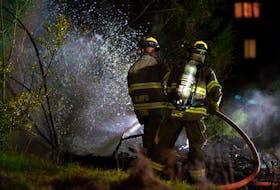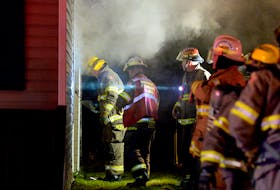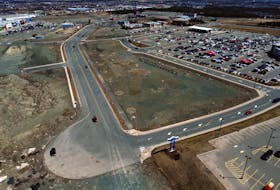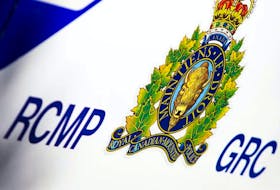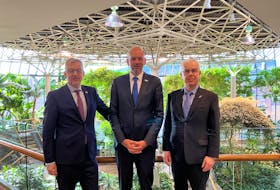The uncertainty over the status of salmon stocks in this province has people on both sides of the debate concerned about what the future holds, but waiting for a decision on what will be the case for this angling season has folks just as frustrated.
Anglers, whether it’s those who are proponents of catch-and-release or fans of hook-and-cook, have been waiting in limbo for the Department of Fisheries and Oceans to reveal its salmon management plan.
On Friday, Fisheries and Land Resources Minister Gerry Byrne, released the provincial government’s position on the inland management of Atlantic salmon for the 2018-19 angling season.
The plan, which is similar to last year’s, has the province recommending that anglers be issued six tags for a retention fishery, but with measures that will prescribe both retention and hook-and-release opportunities co-exist throughout the full angling season for all Class 2 and Class 4 rivers.
The position of the provincial government recognizes that both retention and hook-and-release angling result in fish mortality and, based on that principle, if stocks are shown to be endangered by further removal of salmon then reasonable conversation requirements would necessitate a closure of inland fishing activity.
John McCarthy, president of the Salmon Preservation Association for the Waters of Newfoundland, is concerned about the part of the recommendations that will see angling ceasing for all fishers if an in-season review determined that the returns are low this year.
“I think you’re better off having half of the anglers on the river keeping an eye on things. If I was a poacher I’d feel less secure,” McCarthy said.
McCarthy believes the provincial government is sending a mixed message when it comes to tourism and outfitting opportunities in this province. He said it doesn’t make sense for the province to promote hook-and-release fishing adventures in this neck of the woods through its advertising campaign when it appears the province’s minister of Fisheries and Land Resources is sending a message that they don’t want a fishery at all if the returns prove to be low this year.
He has concerns about what it would mean for the stocks, but also concerned about the financial impact on those with a vested interest in the tourism industry, like guides and outfitters.
He believes it’s not a good thing to have so many people in limbo. He thinks DFO should have had this all sorted out back in October when he believes the information needed to make a decision was readily available.
He said there are lot of people who depend on the salmon season to provide a living. McCarthy said it’s a sad situation when a person who books a trip to come fishing in the province this year may have to be told there is no fishing after he arrives.
“That’s more than wrong. That’s irresponsible in my opinion,” McCarthy said.
Gary Gale, president of the Citizens Outdoor Rights Alliance, supports the recommendations and he hopes a decision is made soon because too many people who depend on the salmon angling season for a livelihood are waiting in limbo because they are unsure of what the season holds.
Gale is worried about the financial impact the delay has caused for business owners who are afraid to place an order for rods, reels and other accessories when they have no clue what kind of fishery they can expect this summer.
‘Everybody has put things on hold,” Gale said.
No matter what happens, Gale is looking forward to angling and he’s sure there are thousands like him, but he hopes that a decision comes soon so people affected by the decision can react in whatever way they please.
One part of the plan, though, that his group doesn’t support is the underlying piece that says, during the mid-season review, if a consensus is found that further fish removals cannot be supported at the end of June then angling will cease for all fishers until a further scientific review is conducted at the end of July.
“We certainly wouldn’t support DFO saying hook-and-release only,” Gale said. “We’re against it because if you don’t want any mortality, why would you open the rivers for hook-and-release? Why would you open the rivers for people to kill fish and just let them sink to the bottom of the rivers as opposed to wanting to retain a fish?”
Gale said his group was ticked off last summer when DFO decided to reduce the salmon angling season to catch-and-release only, this after they determined the returns to the river were alarmingly low and this decision, he said, angered a lot of anglers who like to kill a fish for the table.
“We disagreed with that totally. It was our position that DFO should have honoured the plan for the summer and what happened next year is a different kettle of fish,” he said.
Conservation measures
Two retention tags to be authorized for June with an in-season review completed at month’s end or as early as possible in July
If stocks are deemed sufficient at the end of June to support further fish mortality then two more tags would be issued for July
If a consensus is found that further fish removals cannot be supported at the end of June then angling will cease for all fishers until a further scientific review can be conducted at the end of July
Then, based on the outcome of a second review at the end of July, two of the final six tags issued with a salmon licence would be issued for the remainder of the angling season if warranted or the season will remain closed for all further anglng.


